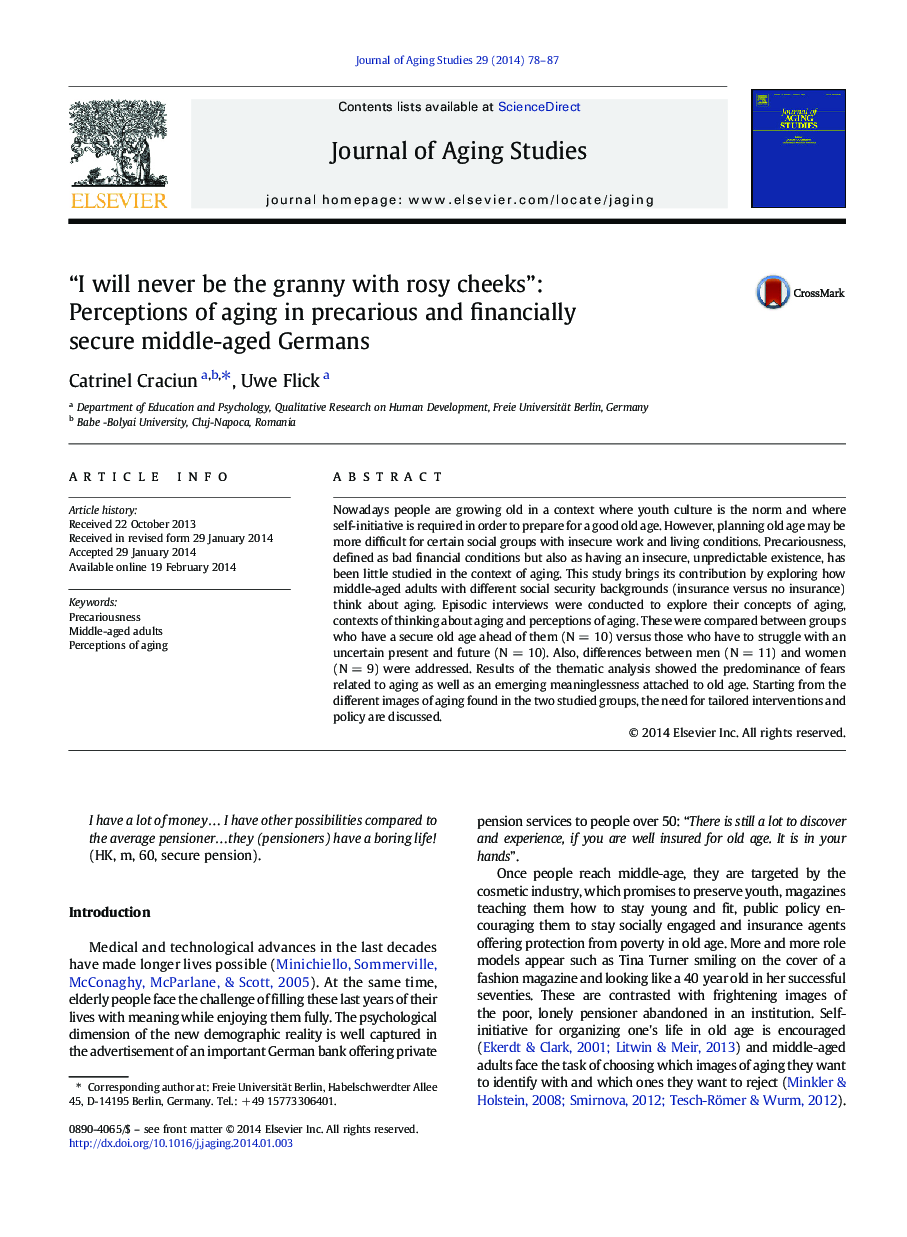| Article ID | Journal | Published Year | Pages | File Type |
|---|---|---|---|---|
| 7517822 | Journal of Aging Studies | 2014 | 10 Pages |
Abstract
Nowadays people are growing old in a context where youth culture is the norm and where self-initiative is required in order to prepare for a good old age. However, planning old age may be more difficult for certain social groups with insecure work and living conditions. Precariousness, defined as bad financial conditions but also as having an insecure, unpredictable existence, has been little studied in the context of aging. This study brings its contribution by exploring how middle-aged adults with different social security backgrounds (insurance versus no insurance) think about aging. Episodic interviews were conducted to explore their concepts of aging, contexts of thinking about aging and perceptions of aging. These were compared between groups who have a secure old age ahead of them (NÂ =Â 10) versus those who have to struggle with an uncertain present and future (NÂ =Â 10). Also, differences between men (NÂ =Â 11) and women (NÂ =Â 9) were addressed. Results of the thematic analysis showed the predominance of fears related to aging as well as an emerging meaninglessness attached to old age. Starting from the different images of aging found in the two studied groups, the need for tailored interventions and policy are discussed.
Keywords
Related Topics
Health Sciences
Medicine and Dentistry
Geriatrics and Gerontology
Authors
Catrinel Craciun, Uwe Flick,
